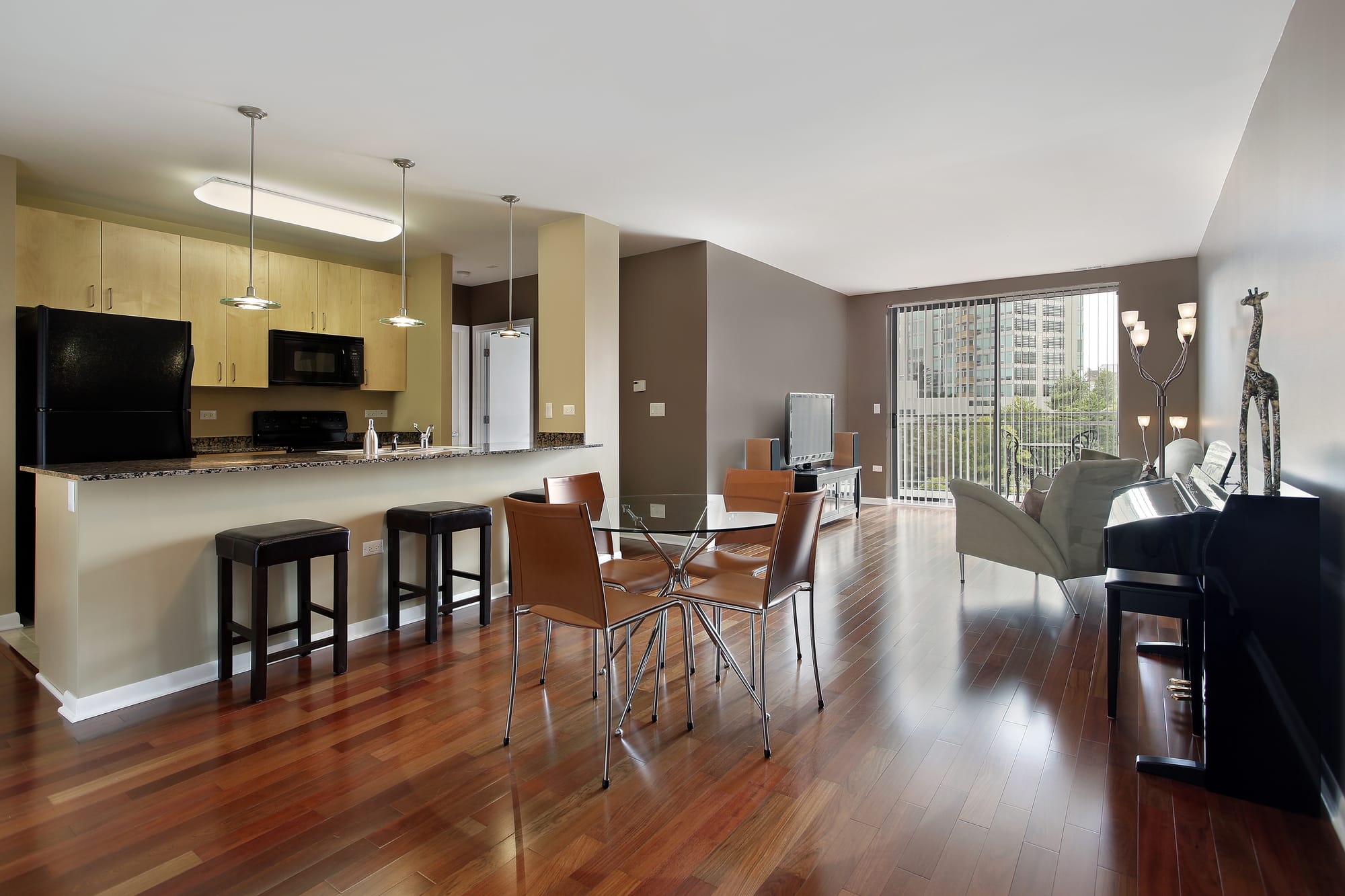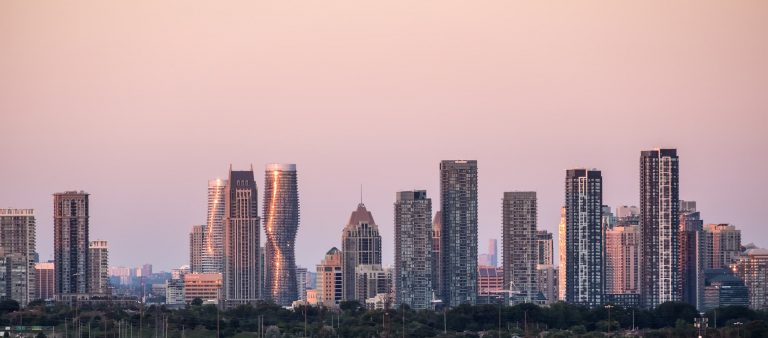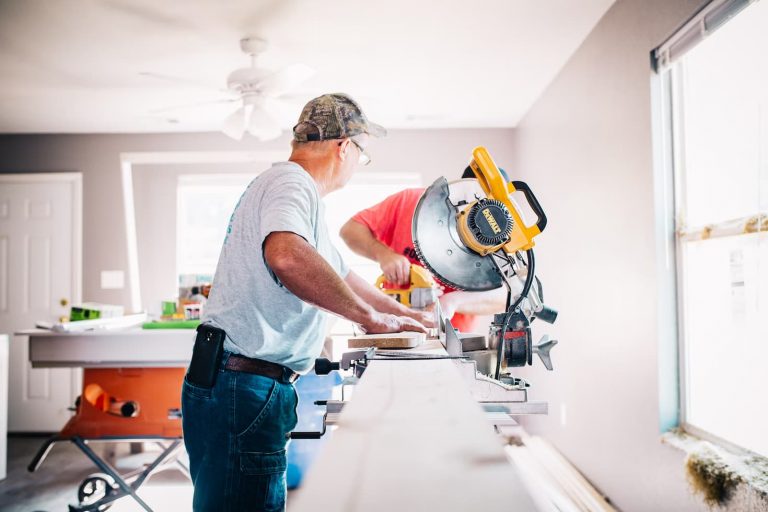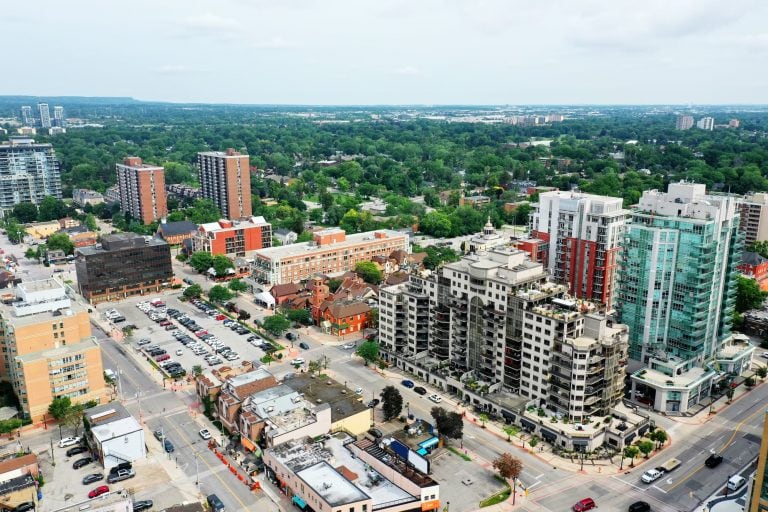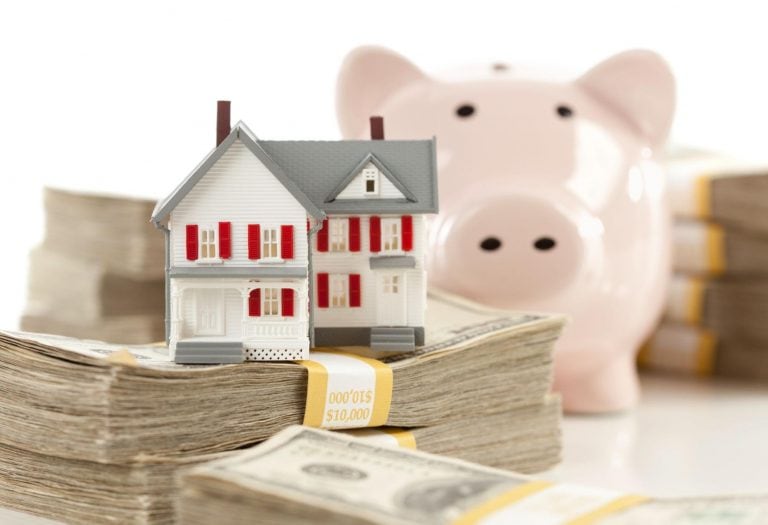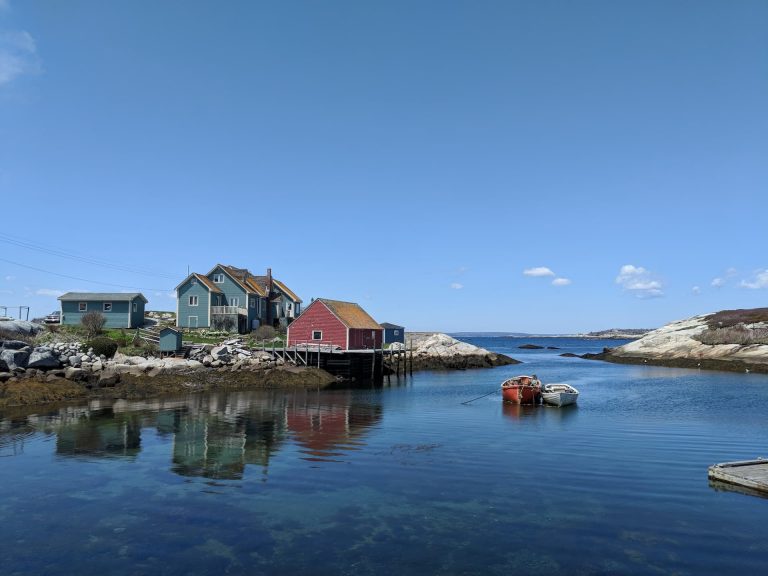Rooftop pools, movie theatre rooms, indoor dog parks, salons – buying a condominium sounds like the most luxurious choice you could make. Whether you want to live in the unit yourself or rent it out to others, condos are an excellent way to be a part of your community. If you are a city-dweller searching for homes for sale in Toronto, Vancouver, or another one of Canada’s urban cities, we are sure you’ve seen plenty of condos mixed in with those listings. But how do you know a condo is the right choice for you? We are here to help you figure that out!
These are 5 things you need to know before you buy a condo, including some crucial information about pre-construction condos. Whichever condo you are looking into, this article will ensure that you go into the transaction with open eyes and a clear understanding of what condo-buying entails.
The Differences in a Condo vs Single-Family Home
The most important thing to remember is that there are immense differences between a single-family home and a condo. Not only do these differences include size, space, and amenities, but they also include financial differences on the front and back end of closing.
Condos are generally found in urban, downtown areas. Since city centres tend to be more populated, more condos are built to accommodate the growing population. This means that a single-family home will generally provide you with more personal space than a condo will.
With that said, condos do offer a convenient lifestyle that few other property types can compare to. Many new condo developments are directly connected to grocery stores, salons, cafes, convenience stores, and other services, giving condo residents the convenience of an entire city within their building.
Condos typically require a few more fees in addition to the buying costs. To keep up with the maintenance of the building and the area around it, you may have more fees when buying a condo than you would otherwise. These fees can cover anything from pool maintenance to HOA insurance, but more on that later.
Consider Whether or Not You Are the “Condo Type”
What does the “condo type” even mean? It means that if you enjoy a rural area with plenty of yard space and/or farmland, you aren’t the condo type. Condos are for those who enjoy being close to the city and having less property to manage. There can often be a bit of noise and congestion in condo-centric areas, so you need to be prepared for that if you want to buy a condo.
Another group of people who could be the “condo type” prefers a low-maintenance living space. This can often include older folks that just don’t have the energy to physically manage a larger single-family home. It can also include young professionals who may not have the time to take care of an entire home, work, and run all their errands in a day.
Whether you are 25 or 65, it could make sense to buy a condo; it just depends on what you want your lifestyle to look like.
Getting a Loan For a Condo May Be Difficult
Now it’s time to get into the nitty-gritty details of condo-buying. The first thing to note is that getting a loan for a condo requires an entirely different process than getting one for a home. Lenders are generally hesitant when it comes to loaning out funds for condos; they usually place loan restrictions on two things:
- A certain number of units in the building must be occupied to receive any funding.
- An investor can only own a certain number of units in one building for them to get a loan.
However, it is possible to find loan help through the CMHC (Canada Mortgage and Housing Corporation). Canadian first-time homebuyers can receive a loan for 5%-10% of their home purchase price to put toward a down payment. If you are a seasoned home buyer and are buying an energy-efficient condo unit, the CMHC offers you a 15%-25% premium refund on your loan insurance. It’s best to consult with an experienced real estate agent or lawyer in matters like these, as it can be easy to miss something in the small print and get blindsided by extra costs or qualifications.
Other Costs Involved
Speaking of blindsiding costs, we want to make sure you are as prepared as possible in regard to condo costs. Condos may seem less expensive than detached homes at first glance, but there are many other fees to consider when buying a condo.
One of the most common costs you’ll see in condo-living is condominium fees. Residents will pay this fee monthly, and it covers maintenance costs in the common condo areas such as the pool, elevators, recreation rooms, and parking areas. Some condo fees may even go to a reserve emergency fund for the HOA to use on larger repairs. Condo fees vary depending on the size, age, and occupancy of the building, so make sure you know what fees look like before you close on your condo.
Another fee to look out for is additional homeowner’s insurance, which may or may not be necessary for your specific condo. While the HOA of the condo will offer homeowner’s insurance, look into the documentation to make sure you aren’t getting jipped on your premiums.
Research the Condo HOA
The last thing you can do is possibly the best thing you can do to protect yourself when buying a condo, and that is to thoroughly research the HOA. When you live in a condo, you are under the supervision and management of the HOA, which impacts your day-to-day lifestyle. For the best understanding of your new potential HOA, sit in on one of their meetings. Better yet, talk to neighbours and previous condo owners to see what the reality of the HOA looks like.
Aside from word-of-mouth research, there are also several resources online where you can find the history of the HOA. You can find out how much monthly dues have increased over the years, if the board has had any tax or general issues, or if they are in a pending lawsuit. The more information you have on your HOA, the better a position you will be in when buying.
BONUS: Buying a Pre-Construction Condo
The previous sections have primarily referred to resale condos, but what if you are interested in a pre-construction development? We’ve got you covered! Cities like Vancouver and Toronto have condos popping up by the dozens, so here is what you need to know if you are looking into investing in a pre-construction condo.
Larger Deposits
Pre-Construction condos typically have a larger deposit percentage to help cover building and opening costs. Most resale condos require a 5% deposit when signing the agreement, but pre-construction condos may require up to a 20% deposit.
Your 10-Day Cooling Off Period
Specifically in Toronto, every condo buyer has 10 days to change their mind once the contract is signed. This “cooling off” period allows the buyer to look into getting pre-approved for a loan and have a trained real estate agent or lawyer look into the contract. If the buyer decides to back out during this time, they will be released from their contract and refunded their deposit with no deduction.
Construction May Take Longer Than Expected
Every pre-construction condo provides an expected completion date for the public, although this date is rarely accurate. More often than not, it takes longer than anticipated for condos to be built and ready to move in, so be prepared to play the waiting game and be flexible. If you are in a specific time crunch, a pre-construction condo may not be the best option for you.
Be Flexible About Building Changes
Be aware that builders have a lot of flexibility when making changes to the common areas of the condo. As a buyer, you have certain protections within your own unit, but if the builders switch the rooftop dog park to a pool area, they have the right to do so. Read the sales agreement thoroughly to be sure you understand what can be changed and what can’t so that no surprises come on move-in day.
Interim Occupancy Period
Pre-construction condos offer an interim occupancy period, where the buyer can move into their unit for a time without officially owning the property yet. During this period, the buyer will simply pay the builder an amount that roughly equals what their mortgage, condo fees, and taxes will equal. This means that no land transfer has happened and no mortgage has been applied yet.
Condo Fees Will Rise Over Time
When you buy a pre-construction condo, fees are typically set really low. The reason for this is that the builders don’t exactly know how much the cost of upkeep and maintenance of the building will cost yet. Enjoy the low fees while you can, because you can expect them to rise within two years of the condo being built.
Condo Registration
Your interim occupancy period is over once the city has completed all inspections and gone through all the processes for the condo to become a legal entity. This is when ownership is officially transferred to the buyer, and the mortgages come into effect. This can take anywhere from 3 months to 2 years, but most condos become registered on the quicker end of the spectrum.
Closing Costs
Here come more fees! When the unit is registered with the city, and you finally close, don’t be surprised if you get charged with a few building adjustment fees. Similar to what you would do when buying a home, you’ll want to set aside 1%-3% of the purchase price for closing costs.
You will also likely be required to put forth two months’ worth of condo fees to the Condo Reserve Fund. This typically happens at the time of closing, and the fund covers any large emergency maintenance costs that could come later.
Harmonized Sales Tax (HST)
In contrast to resale condo units, new-construction condos are subject to Harmonized Sales Tax (HST). If you plan to live in the house, you will likely qualify for an HST rebate and that will be factored into your closing costs. However, if you are an investor, you must prove that you have rented out the condo unit for at least a year in order to get any sort of rebate on your HST.
What You Must Know Before Buying a Condo
We hope this post has thoroughly prepared you for all that is involved when buying a condo. We highly recommend partnering with an experienced local real estate agent when purchasing any property – especially condos. With so many small details in the buying and closing process, you’ll want to ensure that you go in with accurate expectations and information.

